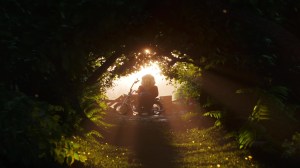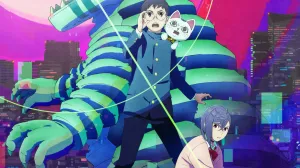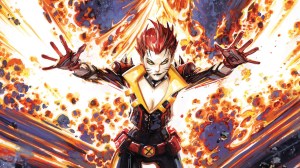
It would be entirely reasonable to scoff at the idea that summer superhero events needed resurrecting. Both Marvel and DC have continued to push out big crossovers and miniseries with enormous price tags on an almost annual basis since the early 2000s. But here’s the thing about resurrections, as we were recently reminded by Pet Sematary: “Sometimes dead is better.” For far too long the next big thing that will change everything pitch has slumped forward across both of the largest superhero universes, racking up sales but picking up very little in the way of praise from fans or critics. The War of the Realms didn’t bother bringing that idea to a wendigo-haunted mountain though; it’s the series that has brought back the summer superhero event for good.
Videos by ComicBook.com
With only two issues left to go and almost all of its tie-ins, miniseries, and one-shots revealed, it seems like a reasonable time to assess what “The War of the Realms” has accomplished. This massive storyline that includes almost every character at Marvel Comics and is certainly leaving a mark on Midgard is filling a familiar spot, but it’s filling it better than any other recent attempt. Why it has succeeded boils down to three key elements: scheduling, setup, and style.

Scheduling: The Books Run on Time
The last time Marvel Comics made a run at a truly great summer superhero event was with Secret Wars. Nothing in the publisher’s history matched the scope of overhauling the entire line for a complete season, replacing everything in continuity series with a new #1 occurring on Battleworld. The main event had been carefully constructed across many years, acting as the culmination of writer Jonathan Hickman’s runs on both Fantastic Four and Avengers. However, the climax of that achievement was lost as the last several issues were continually pushed out or as new installments were added. The ending was revealed as regular series returned with multiple issues of Secret Wars still unpublished. If you weren’t reading Marvel at the time, just imagine if Spider-Man: Far From Home and Black Panther 2 came out before Avengers: Endgame. It was a disappointment, to say the least.
The War of the Realms, on the other hand, is hitting all of its marks. The core series has been held to only six issues, which have been coming out on a shorter than monthly schedule from the same creative team. It’s impressive enough that the centerpiece is on time and creatively cohesive (a true rarity for summer events), but so are most of the tie-ins and miniseries. Fans only need to read one thing to know what the big deal is all about, and can reliably jump into any of the additional material without worrying about spoilers or delays. That scheduling feat has made The War of the Realms accessible and enjoyable like few other summer superhero events.

Setup: The Hype Is Real
Even before The War of the Realms was scheduled or announced, the stories that were building to this event were already an event unto themselves. Jason Aaron‘s run on Thor, through a variety of differently titled series with various versions of Thor, have been a centerpiece at Marvel Comics since it began with Thor: God of Thunder in 2012. Each new chapter has featured Aaron with some of the mightiest artists of the modern era like Esad Ribic and Russell Dauterman. It drew critical accolades and big sales from the start, and never really appeared to slow down. If The War of the Realms really is the swan song for this almost decade-long run, then it has earned comparisons to the standard bearers for Thor comics: Walt Simonson, Jack Kirby, and Stan Lee.
It isn’t simply that this event is the capstone project for so many years of excellent superhero comics, though. After reading four issues of The War of the Realms, it’s apparent that ideas for this event have been swirling since almost the very beginning. The weapon “All-Black the Necrosword” has returned from Aaron’s very first story and been tied into the current Venom series as well, connecting all of this back to the very start. Rumors and topics of the current story emerged years ago when Aaron penned another summer event, Original Sin, in 2014. Thor’s loss of his worthy status and the assumption of his role by Jane Foster would establish both “The League of Realms” and Malekith’s rise to power. Five years is a long time to build towards a final conflict, but it also makes the scope of that conflict feel earned. Aaron and his collaborators have done all of the legwork necessary to put on a show worthy of the biggest platform in superhero comics today.

Style: The Best Talent Around
The throughline in both scheduling and setup is the creators at the heart of The War of the Realms, Jason Aaron and Russell Dauterman. This dynamic duo has crafted the long game that made this event possible and are continuing to deliver the high quality of comics fans have come to expect on each new release date. Without this pair and all of their former and current collaborators, there wouldn’t a be a summer superhero event worth celebrating. Both in interviews and the work itself, it is apparent that this is not a mandated crossover but a passion project that pulls together years of hard work. This is the heart that makes everything else in the event feel vibrant.
That applies to the excellent artists, writers, colorists, and other creators assembled for the many stories linked to The War of the Realms as well. The Journey Into Mystery mini-series features the hilarious McElroy family alongside rising star artist Andre Lima Araujo. It’s a comedic tangent that can be enjoyed entirely on its own, but there’s still no loss of quality for that. Even The Unbeatable Squirrel Girl, a celebrated series that has avoided all prior opportunities to tie into summer events, has joined in on these festivities.
The War of the Realms has presented a model for what a summer superhero event can be, at its best, a reminder of why these sorts of stories became central to the publishing schedule more than a decade ago. It has managed to deliver a story from some of Marvel’s best creators that naturally builds on their own ongoing passions, and does it on time. No part of “The War of the Realms” feels forced. Rather, it’s a celebration of years of monthly publishing achievements culminating in one fantastic, final battle. If summer superhero events must continue on an annual basis, then this is the model they should all follow.








